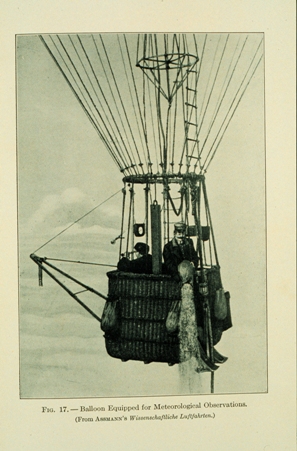Wegener's Meterology
The Sciences

Wegener was an accomplished meteorologist and made several key contributions to meteorology. He used balloons to track air circulation in order to learn about the atmosphere, he wrote a textbook that became the standard text throughout Germany, and he was a part of several expeditions in Greenland to study polar air circulation and ice. Wegener also became a world record holding balloonist; completing a single flight of 52 hours with his brother Kurt.
Wegener served as a junior lecturer in meteorology at the University of Marburg, Germany where he worked on his thermodynamics of the atmosphere text. In 1912, he participated in an expedition to Greenland, which became the longest crossing of the ice cap of the time. He served in World War I for the weather service and after the war became the director of meteorological research at the Department of Marine Observatory (Hamburg, Germany). Finally in 1924, he became chair of meteorology and geophysics at the University of Graz, Austria. Wegener died while leading a third expedition to Greenland at age 50.